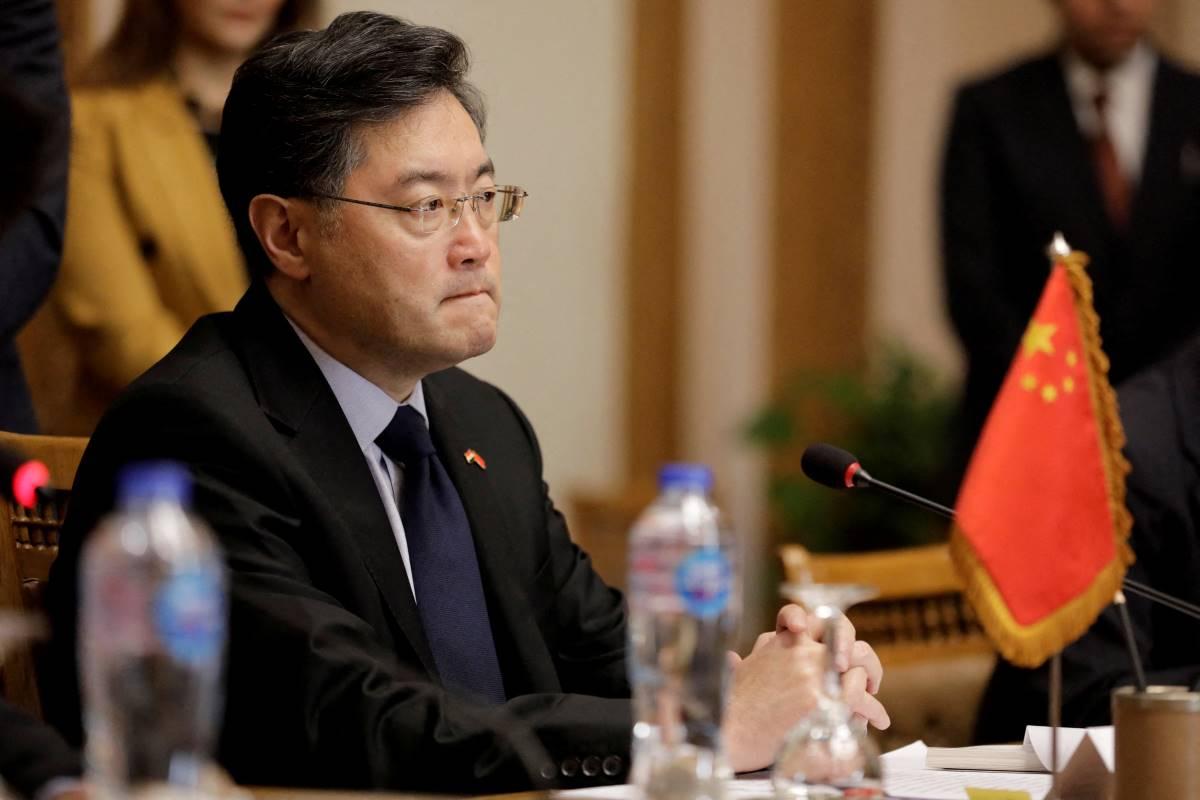Chinese foreign minister in Manila amid PH-US Balikatan exercises

Chinese Foreign Minister Qin Gang arrived in Manila on Friday to try to boost ties with the Philippines, which is staging the largest ever Balikatan military exercises with the United States.
Philippine officials said Qin is set to meet President Ferdinand Marcos Jr. on Saturday after an initial meeting with his Philippine counterpart Enrique Manalo.
Qin's visit coincides with the Philippines and the United States holding their largest joint military exercises, with nearly 18,000 troops taking part in live-fire and combat drills until April 28.
He arrived in Manila at around 10 pm on Friday (1400 GMT) on his first visit to the Philippines as foreign minister, according to an AFP reporter at the airport.
Marcos has sought to strengthen ties with Washington after his predecessor, Rodrigo Duterte, trashed the alliance and shifted towards Beijing for economic deals and infrastructure projects.
This was despite conflicting territorial claims between China and the Philippines in the strategic South China Sea.
"Regional security issues of mutual concern" will be part of the discussions, the Department of Foreign Affairs (DFA) said in a statement. Strengthening cooperation in agriculture, trade, energy and infrastructure is also on the agenda.
Chinese foreign ministry spokesman Wang Wenbin said on Friday Qin's visit is aimed at "enhancing mutual trust" and "properly handling differences" with the Philippines.
"China looks forward to strengthening communication with the Philippines through this visit," Wang told a regular briefing.
Overlapping claims in the South China Sea have been a sticking point in the relations between the two countries.
Beijing claims almost the entire waterway, deploying hundreds of vessels there to patrol the waters and occupy reefs.
It has also ignored a 2016 international tribunal ruling that its claims have no legal basis.
Philippine foreign affairs analyst Richard Heydarian said Qin's visit is "timely and extremely important" given the current state of relations between the two nations.
"We're really confronting a total crisis in Philippine-China relations," Heydarian told AFP.
"The question is what is China going to offer the Philippines? Is it sticks or is it carrots? If it's carrots, will it be enough in terms of changing Marcos' ideas?"
Qin's predecessor, Wang Yi, was the first foreign minister to visit Marcos last year, describing his election in June as "turning a new page" that would create a "new golden age of bilateral relations" between the two countries.
Since then, however, Marcos has gravitated closer to the United States.
The Philippine leader will meet US President Joe Biden next month to discuss efforts to strengthen the longstanding alliance between the treaty allies.
Manila and Washington agreed in recent months to restart joint maritime patrols on the South China Sea and agreed to expand US forces' presence in the country.
Marcos has also allowed the United States to rotate its troops around four additional sites under a 2014 deal that originally identified five locations.
The new sites include a naval base and airport in northern provinces near Taiwan and an air base off an island near the South China Sea.
While the Philippine military is one of the weakest in Asia, the country's proximity to Taiwan and its surrounding waters would make it a key partner for the United States in the event of a conflict with China.
The DFA said Qin's visit will also build on Marcos' visit to Beijing in January, when he and Chinese President Xi Jinping agreed on a "friendly" handling of disputes.
Weeks later, Manila accused a Chinese vessel of using a military-grade laser light against a Philippine patrol boat.
The DFA has said it filed more than 70 protests against China's "persistent and illegal presence in Philippine water" since Marcos assumed the presidency last year. -- Agence France-Presse




